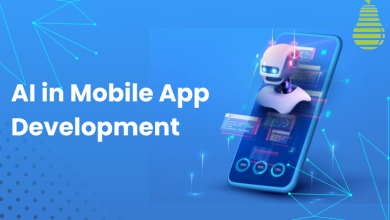10 AI Marketing Strategy Trends Every Brand Must Know This Year

As we navigate through an increasingly digital landscape, the integration of artificial intelligence (AI) in marketing strategies has become a game-changer for brands looking to enhance their performance and customer engagement. AI technologies are no longer just buzzwords; they are essential components that can transform how brands interact with their customers, analyze data, and optimize their marketing efforts. By leveraging AI, businesses can gain deep insights into consumer behavior, tailor their messaging, and ultimately drive higher returns on investment.
For brands aiming to stay ahead, understanding emerging trends in AI marketing strategy is crucial. If you’re looking to refine your approach, exploring comprehensive AI marketing strategy services can provide valuable insights. This post will highlight ten AI marketing strategy trends that every brand must be aware of this year to thrive in a competitive marketplace.
1. Hyper-Personalization
Hyper-personalization is one of the most significant trends in AI marketing. Unlike traditional personalization, which may use demographic data, hyper-personalization leverages AI to analyze consumer behavior, preferences, and purchase history in real-time. This allows brands to create highly tailored experiences that resonate with individual customers. For instance, AI algorithms can recommend products based on browsing history or suggest content that aligns with a user’s interests.
This level of personalization not only enhances customer satisfaction but also drives conversion rates. Brands that implement hyper-personalized marketing strategies can expect to see improved customer loyalty and increased sales, making it a critical trend to adopt.
2. Predictive Analytics
Predictive analytics uses historical data and AI algorithms to forecast future consumer behavior. By analyzing patterns and trends, brands can anticipate customer needs and preferences, enabling them to make proactive marketing decisions. For example, predictive analytics can help identify which products are likely to be popular in the upcoming season, allowing brands to optimize their inventory and marketing strategies accordingly.
This data-driven approach minimizes guesswork and enhances the efficiency of marketing campaigns. Brands leveraging predictive analytics can tailor their messaging and offers, ultimately leading to higher engagement and improved ROI.
3. Chatbots and Conversational AI
Chatbots and conversational AI are revolutionizing customer service and engagement. These AI-driven tools can interact with customers in real-time, answering questions, providing recommendations, and even completing transactions. By implementing chatbots on websites and social media platforms, brands can offer 24/7 support, enhancing the overall customer experience. Moreover, chatbots can gather valuable data on customer interactions, which can be analyzed to improve future marketing strategies.
As consumers increasingly expect instant responses, brands that invest in conversational AI can significantly enhance their customer service capabilities and foster stronger relationships with their audiences.
4. AI-Driven Content Creation
Content marketing remains a cornerstone of successful digital marketing strategies, and AI is now playing a pivotal role in content creation. AI tools can analyze trending topics, user preferences, and engagement metrics to generate relevant and engaging content. For instance, AI can assist in drafting blog posts, social media updates, and even video scripts. By automating the content creation process, brands can save time and resources while ensuring that their messaging remains relevant and appealing to their audience. As AI technology continues to evolve, brands that embrace AI-driven content creation will be better equipped to produce high-quality, engaging content at scale.
5. Enhanced Data Privacy and Security
With the rise of AI in marketing comes the need for enhanced data privacy and security measures. As brands collect more data to fuel their AI algorithms, they must also ensure that they are compliant with regulations such as GDPR and CCPA. Implementing robust data protection strategies not only builds consumer trust but also safeguards brands against potential legal issues.
AI can assist in monitoring and managing data privacy by identifying vulnerabilities and ensuring that sensitive information is handled securely. Brands that prioritize data privacy will not only comply with regulations but also enhance their reputation in the eyes of consumers.
6. Voice Search Optimization
As voice-activated devices continue to gain popularity, optimizing for voice search is becoming increasingly important for brands. AI technologies enable better understanding of natural language processing, allowing brands to tailor their content for voice search queries. This involves focusing on long-tail keywords and conversational phrases that users are likely to speak rather than type.
By optimizing for voice search, brands can enhance their visibility in search results and reach a broader audience. As the use of voice search continues to rise, brands that adapt their SEO strategies accordingly will gain a competitive advantage.
7. Automated Ad Campaigns
AI is transforming the landscape of digital advertising through automated ad campaigns. These systems use machine learning algorithms to analyze performance data and optimize ad placements in real-time. By automatically adjusting bids and targeting based on performance metrics, brands can maximize their advertising budgets and enhance campaign effectiveness. This automation not only saves time but also ensures that ads reach the right audience at the right moment. Brands that leverage automated ad campaigns can expect improved ROI and greater efficiency in their advertising efforts.
8. Augmented Reality Experiences
Augmented reality (AR) is emerging as a powerful tool for enhancing customer engagement. AI technologies are enabling brands to create immersive AR experiences that allow customers to interact with products in innovative ways. For instance, brands in the fashion industry can offer virtual try-on experiences, while home decor brands can allow customers to visualize furniture in their own spaces.
By integrating AR into their marketing strategies, brands can enhance customer experiences and create memorable interactions that drive conversions. As AR technology advances, brands that adopt these experiences will set themselves apart in a crowded marketplace.
9. Social Media Listening and Sentiment Analysis
AI-driven social media listening tools are essential for understanding consumer sentiment and trends. By analyzing social media conversations, brands can gain valuable insights into customer opinions and preferences. Sentiment analysis enables brands to gauge how their audience feels about their products, services, and overall brand perception.
This information can inform marketing strategies, product development, and customer service initiatives. Brands that actively engage in social media listening can respond to customer feedback in real-time, strengthening their relationships with their audience and enhancing brand loyalty.
10. Continuous Learning and Adaptation
The landscape of AI marketing is constantly evolving, and brands must embrace a culture of continuous learning and adaptation. By leveraging AI tools, brands can analyze the effectiveness of their marketing strategies and make data-driven adjustments accordingly. This involves regularly reviewing performance metrics, consumer feedback, and industry trends to stay ahead of the competition. Brands that foster a mindset of adaptability will be better equipped to respond to changing consumer needs and market conditions, ensuring their marketing efforts remain relevant and effective.
Frequently Asked Questions (FAQs)
1. What is an AI marketing strategy?
An AI marketing strategy leverages artificial intelligence technologies to analyze data, optimize marketing efforts, and enhance customer engagement.
2. How can AI improve customer segmentation?
AI analyzes customer data to identify distinct segments based on behaviors and preferences, allowing for more tailored marketing efforts.
3. What role do chatbots play in AI marketing?
Chatbots provide real-time customer support, gather data on interactions, and enhance overall customer engagement.
4. Why is voice search optimization important?
As voice-activated devices become more common, optimizing for voice search helps brands enhance visibility and reach a broader audience.
5. How does AI contribute to automated ad campaigns?
AI analyzes performance data to optimize ad placements in real-time, maximizing advertising budgets and improving campaign effectiveness.
Conclusion
Incorporating AI into marketing strategies is no longer optional; it is essential for brands aiming to thrive in today’s competitive landscape. From hyper-personalization and predictive analytics to automated ad campaigns and augmented reality experiences, the trends outlined in this post highlight the transformative power of AI in marketing. By staying informed and adapting to these trends, brands can enhance their customer engagement, streamline their operations, and ultimately boost their ROI.
As AI technologies continue to evolve, embracing these trends will be critical for brands seeking to maintain a competitive edge and drive sustainable growth in the coming year.
Read More From Techbullion

Source: 10 AI Marketing Strategy Trends Every Brand Must Know This Year

